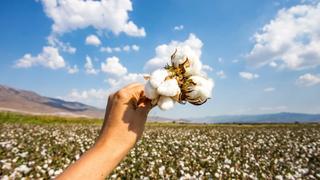The shrimp supplies from the major producing countries has not been seriously impacted by Covid -19. The global supply of farmed shrimp may decline by about 10 per cent this year when compared to 2019, a panel discussion at a webinar on shrimp production and consumption conducted by Society of Aquaculture Professionals said.
Global shrimp trade has not been affected to a large extent except in the case of China. However, lower consumption in the US — where the increase in retail sales has not compensated for the loss of food service sales — means that unsold inventories would be fairly high. Further declines can be expected in the winter due to anticipated restrictions in restaurant operations, it said.
Prices on a slide
Shrimp prices have been battered due to the disruptions of the lockdown as well as the loss of consumer confidence in China. While the low prices have been used to stimulate some of the consumption, the response in the major producing countries to low prices will drive future decisions on production, types of products, market focus, and farming technologies, it said.
George Chamberlain, President of the Global Aquaculture Alliance, said the pandemic only exacerbated what was already a downward trend in prices and the solution was to invest in a unified market promotion by the stakeholders in the shrimp sector to stimulate more consumption.
He pointed out that global shrimp supply has been on a rising trend for the last few years and prices have been falling indicating that markets were getting saturated inspite of the emergence of China as a major market in recent years.
Indian exports down
Indian shrimp exports have declined by about 15 per cent but the exports of cooked and breaded forms of products to the US market have registered an increase, said P Anilkumar, Joint Director of Marine Products Export Development Authority.
Speaking at the webinar ‘Global Shrimp Market: Looking Beyond the Pandemic’ he said Indian processors have the flexibility to meet the market requirements in a short notice.
Paresh Kumar Shetty, senior general manager of Avanti Feeds, said that the sudden and strict early lockdown in the country resulted in many disruptions affecting shrimp production and processing. Lower shrimp prices also dampened farmers’ spirits. While lockdown has been relaxed, labour availability continues to be an issue. Also, farmers are facing production challenges in many regions. As a result, he said India’s farmed shrimp production is likely to go down from about 800,000 tonnes in 2019 to about 675,000 tonnes in 2020.







Comments
Comments have to be in English, and in full sentences. They cannot be abusive or personal. Please abide by our community guidelines for posting your comments.
We have migrated to a new commenting platform. If you are already a registered user of TheHindu Businessline and logged in, you may continue to engage with our articles. If you do not have an account please register and login to post comments. Users can access their older comments by logging into their accounts on Vuukle.